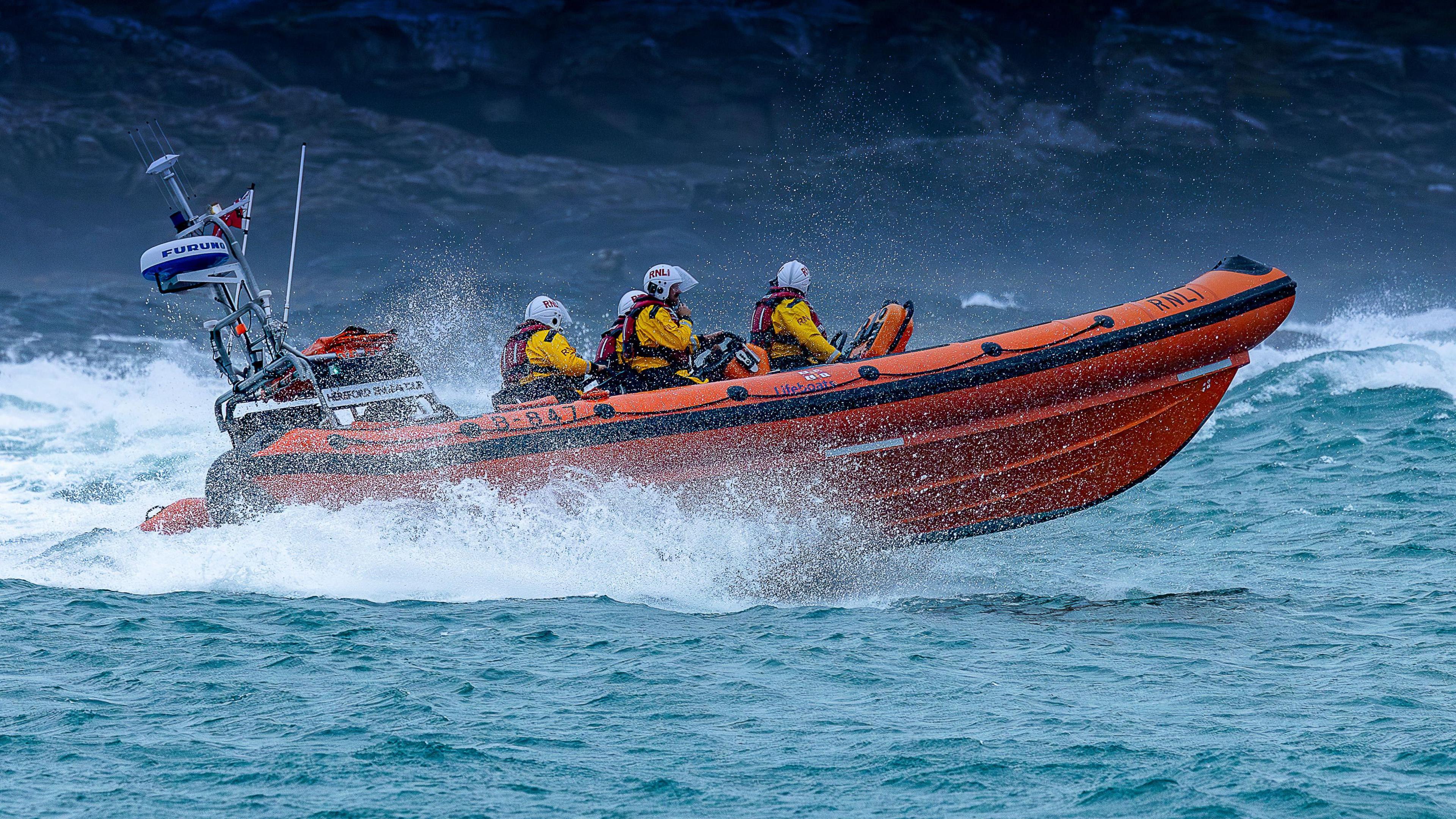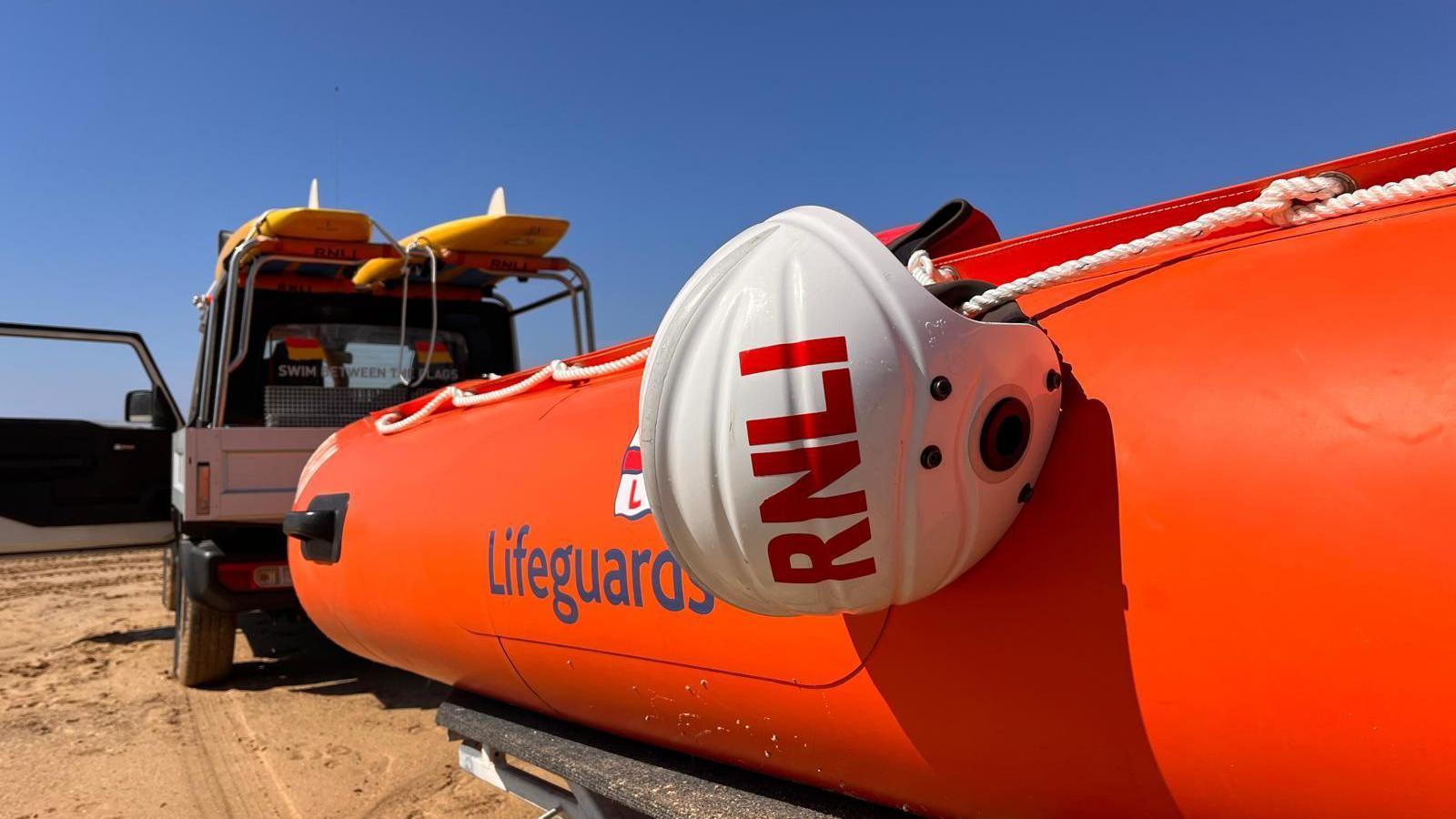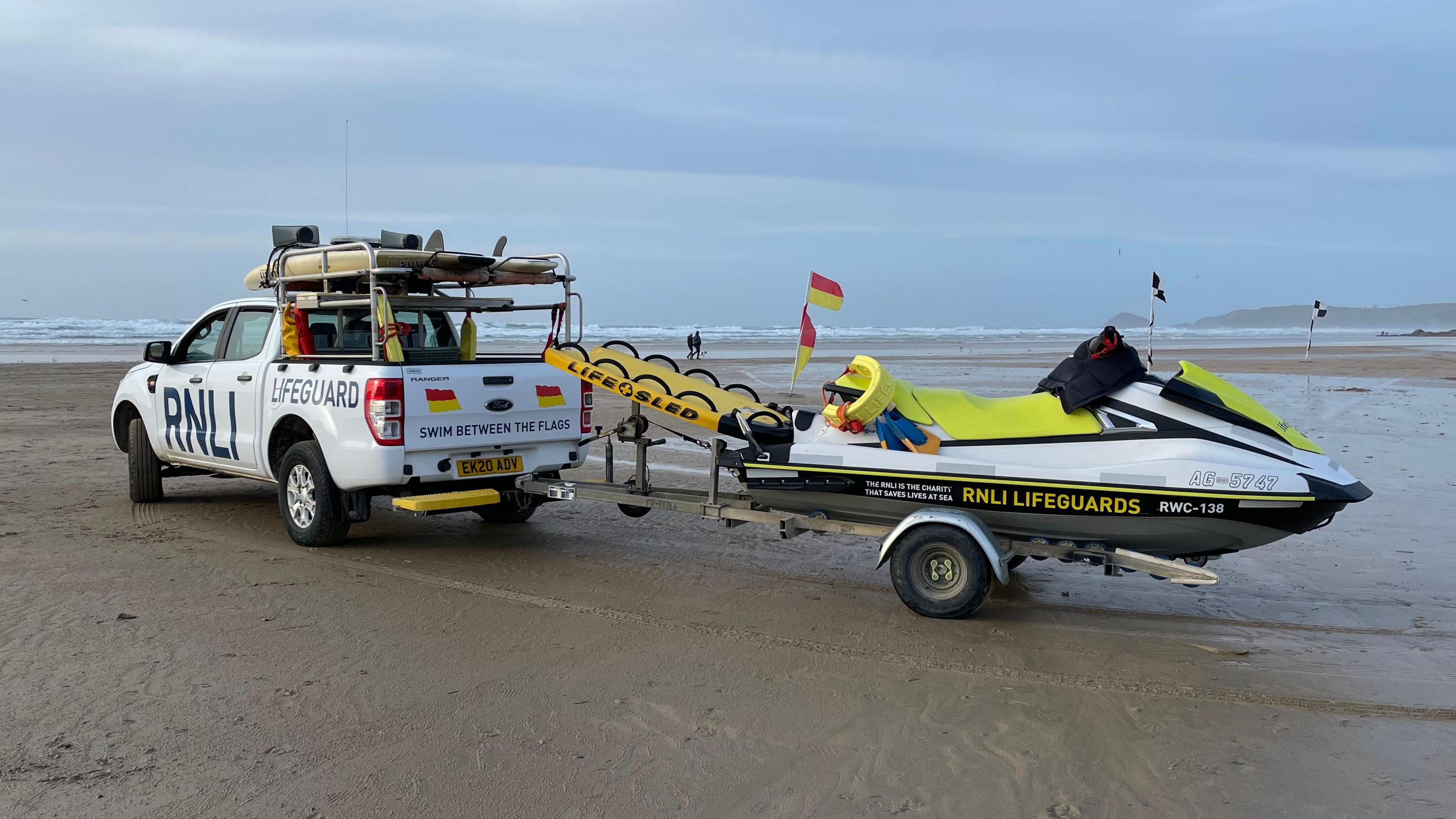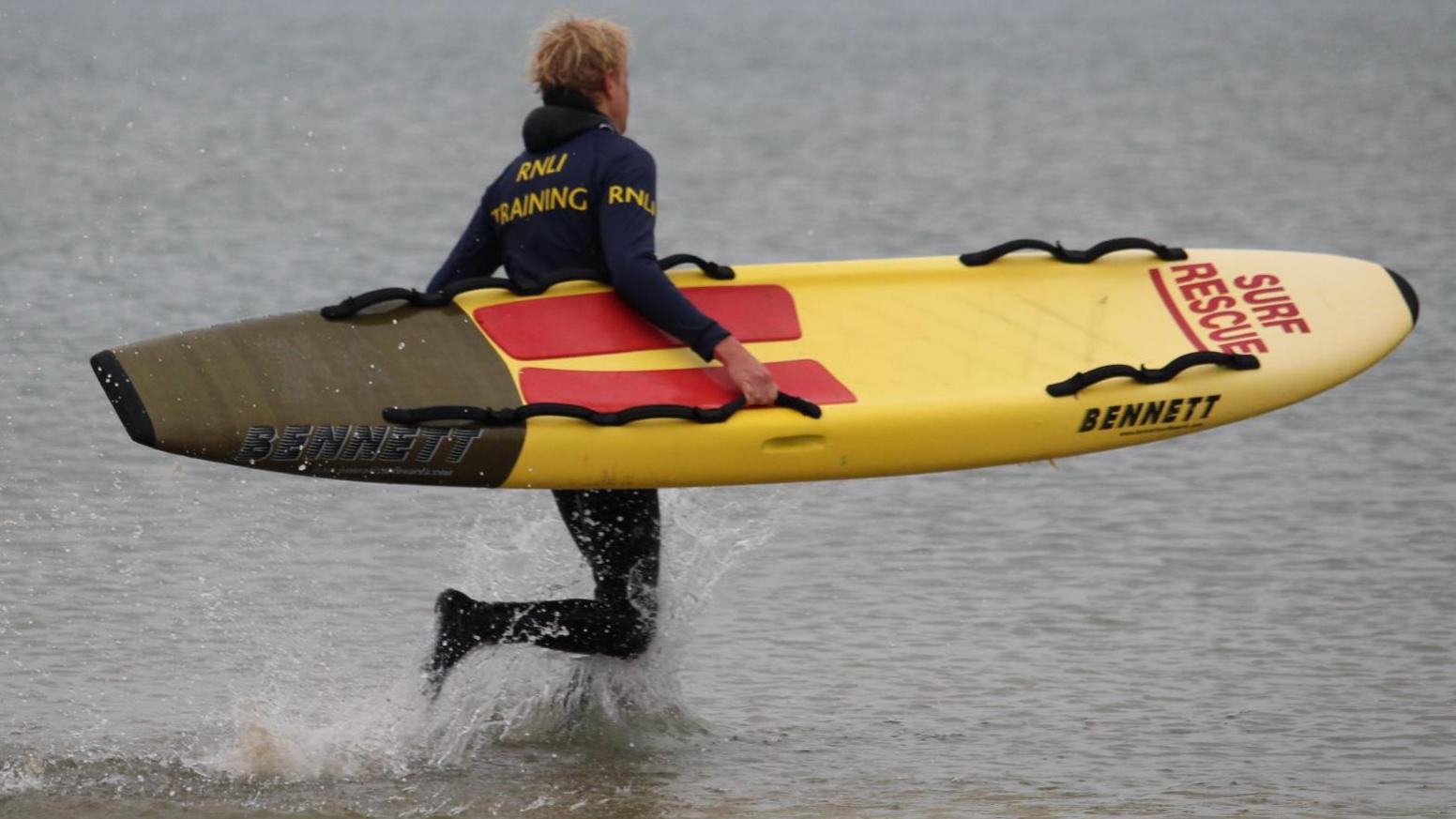Lifeboats replaced as 'more people use coast'

The RNLI says more people are using the sea for recreational activities
- Published
Four lifeboats will be replaced in a bid to help more people using the coast, the RNLI has said.
As part of a wider strategy set to be rolled out over the next two years the RNLI said lifeboats would be replaced at Ilfracombe, Appledore and Salcombe, in Devon.
The charity said more people were using the coast for recreational activities which included open water swimming and paddleboarding, so the majority of incidents it attended were now closer to shore.
Adrian Carey, RNLI head of region for the South West, said inshore lifeboats were "an essential part" of the fleet as they were required for 97% of its calls.
Mr Carey said the charity's "strategy has established principles through a response to the changing way people are using the coastline".
Ilfracombe is set to receive an Atlantic 85 inshore lifeboat, one of the "fastest" in the RNLI, which will replace its current Shannon class all-weather lifeboat.
Appledore will replace its current inshore lifeboat with another to support incidents up the river, and it will also replace its Tamar class all-weather lifeboat with a Shannon class vessel.
Salcombe RNLI will receive a new Shannon class lifeboat to replace its current Tamar class boat.
Mr Carey said: "We understand the impact of any change on our people, our staff and our communities and are committed to supporting them through this change."
'We must respond'
He said: "As a charity, it is essential we use donors' money wisely and allocate the most appropriate resources to save the greatest number of lives in the most effective way.
"We acknowledge the incredible support the stations and volunteers receive from their local communities, and we hope it will continue as we adapt the pattern of lifeboats around the coast of the UK and Ireland to the changing nature of lifesaving."
Peter Sparkes, RNLI chief executive, said: "Clear evidence shows the nature of lifesaving is changing, at a time when demand for our vital service is increasing – we must respond to this.
"If the RNLI is going to save even more lives, our lifeboat and lifeguard services must continue to adapt to these changing needs.
"We need to have confidence that the decisions we make now set us on a sustainable trajectory that is appropriate for the changing nature of lifesaving demand.
"This is fundamental if we are to achieve our goal of a future-fit, sustainable lifesaving service that keeps our people safe and enables us to save everyone we can."
Follow BBC Devon on X, external, Facebook, external and Instagram, external. Send your story ideas to spotlight@bbc.co.uk, external.
- Published27 September

- Published13 August

- Published2 April
